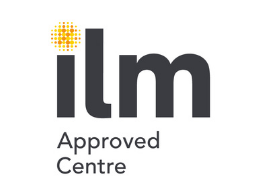Leadership is no longer just about setting goals and guiding teams to success, it’s about revolutionising the approach to business itself and empowering leaders.
As digital technologies continue to disrupt the status quo, the role of a leader transcends traditional boundaries, demanding a keen understanding of the digital world and the ability to lead with vision and adaptability. In this article, we will explore the critical skills that leaders must possess to master the art of leading in the digital age, ensuring that their organisations adapt and thrive in an era of constant change.
The Shift to Digital Leadership
Digital technologies are reshaping industries at an unprecedented pace, necessitating a shift in leadership styles and strategies. This digital transformation isn’t just about adopting new technologies and changing how organisations operate and compete.
As a result, leaders today face the challenge of guiding their teams through a constantly evolving business landscape.
Essential Skills for Digital Age Leaders
Agility and Adaptability
The ability to adapt quickly to market changes and technological advancements is crucial. Leaders must be agile enough to pivot strategies, embrace new business models, and lead through change. For example, during the COVID-19 pandemic, agile leaders efficiently transitioned their teams to remote working, minimising disruptions to operations.
Tech-Savviness
A fundamental understanding of the latest technologies is crucial in the digital age. Leaders can be something other than IT experts but should have a solid grasp of the technologies that impact their industry.
Engaging in continuous learning through courses, webinars, and seminars can help leaders maintain a competitive edge.
Data-Driven Decision Making
With the vast data available today, leaders need to harness this information to make informed decisions. Utilising analytics tools can provide insights that drive strategy and improve outcomes.
For instance, data can reveal critical customer behaviour patterns, operational bottlenecks, and market trends for strategic planning.
Emotional Intelligence
Leadership requires more than just strategic thinking and operational expertise. Emotional intelligence—empathising with others, regulating emotions, and handling interpersonal relationships judiciously is vital.
This skill is essential when managing diverse and geographically dispersed teams.
Innovative Thinking
Today’s leaders must also foster an environment encouraging innovation and creative thinking. This involves challenging the status quo and being open to experimenting with new ideas.
Influential leaders balance the risks and rewards of innovation, ensuring that their organisations can capitalise on new opportunities without jeopardising their core operations.
Implementing Leadership Skills in Your Strategy
Consider establishing training programs focusing on these key areas to integrate these skills into your leadership approach. Regular assessments can help track progress and identify areas for improvement. Additionally, soliciting feedback from peers and subordinates can provide valuable insights into a leader’s effectiveness.
Empowering Leaders: Conclusion
Today demands a new breed of leaders—ones who are adaptable, tech-savvy, data-oriented, emotionally intelligent, and innovative. Leadership development addresses an individual’s ability to influence people, through personal actions and behaviour, towards achieving a common goal.
By cultivating these essential skills, leaders can ensure their organisations are well-positioned to succeed and thrive today, tomorrow, and in the future.








